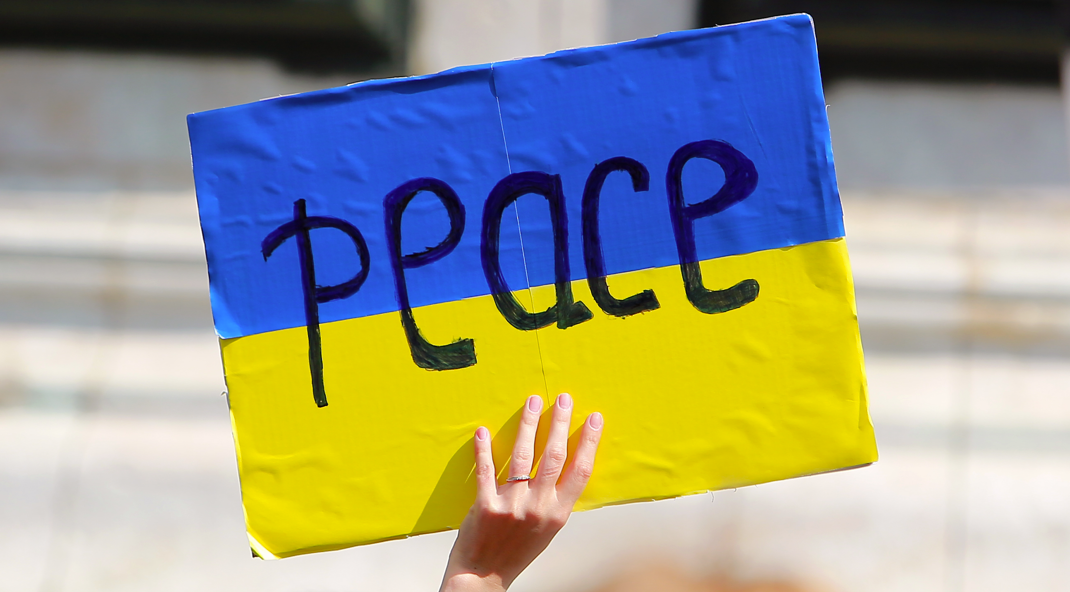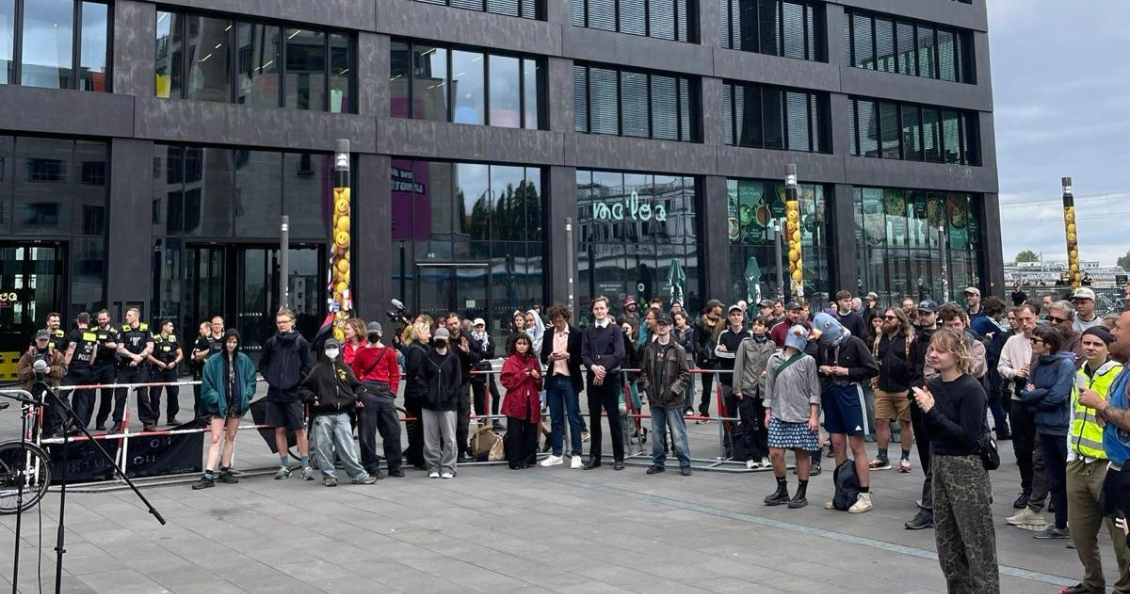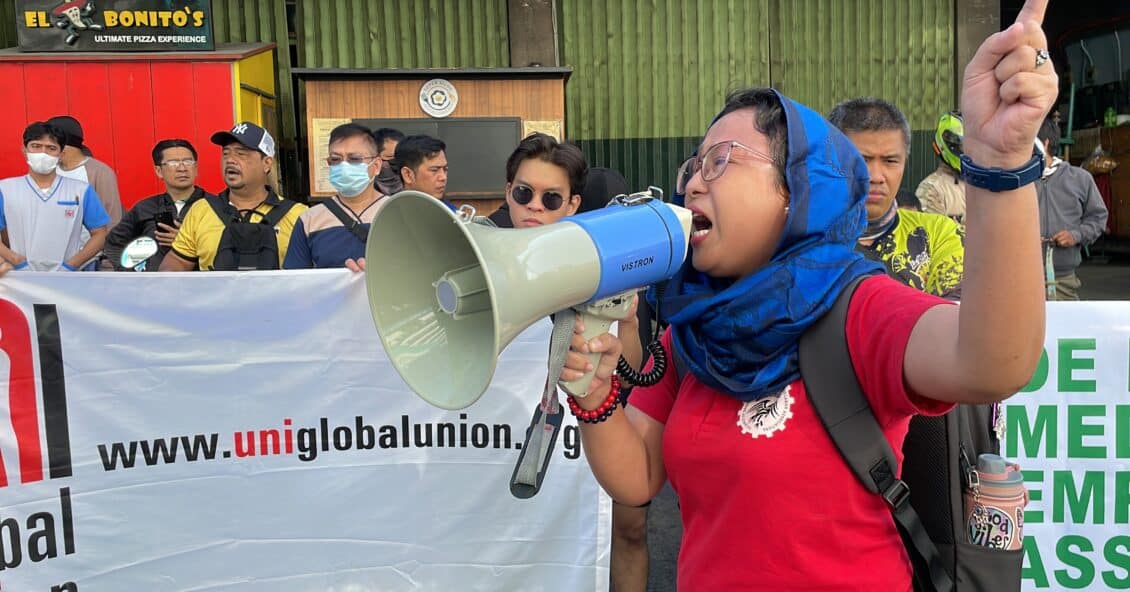UNI Global Union condemns attack on Ukrainian hospital: A firsthand account
07.08.24
On July 8, Russian forces launched an attack on Ohmatdyt, Ukraine’s primary children’s hospital, which serves children with severe illnesses. At the time of the attack, approximately 600 patients were inside the facility. Tragically, the attack resulted in the death of an adult visitor and a doctor, while about 300 people were injured, including eight children. The same day saw further violence, including an attack on a private maternity hospital, which claimed nine lives, a business center where seven people died, and a residential building that resulted in the deaths of 13 residents, including five children. In total, 33 people perished in Kyiv on July 8, including six care workers. Several members of the UNI-affiliated union Lviv Regional Trade Union of Medical Workers and Healthcare Workers were victims of this attack.
UNI Global Union’s General Secretary Christy Hoffman, who visited the area in early June, expressed profound concern over the attack, stating, “The attack on Ohmatdyt is a stark reminder of the devastating impact of this conflict on innocent civilians, particularly children and medical workers who are on the frontlines saving lives. We stand in solidarity with the brave care workers who continue to work under these harrowing conditions and call for immediate international action to protect healthcare facilities and ensure the safety of medical personnel in conflict zones.”
Tatiana, an X-ray technician at Ohmatdyt, recounted her experiences during the attack.Having worked at the Radiology Center for over a decade, Tatiana was on duty, conducting patient rounds with a portable X-ray machine when the explosion occurred.
“I thought it was the end. Everything was falling on my head. It was a matter of seconds, but it’s impossible to convey the feeling when you see it with your own eyes, when you realize that this is Ohmatdyt—a sanctuary that should never have been hit,” Tatiana said. Despite the shock, Tatiana quickly realized the urgent need for her skills. “I saw that many people needed immediate help. Employees, patients, and children covered in blood were running around. Someone was shouting that they had a concussion. I saw there was no light, so I had to work with the portable machine,” she explained. Tatiana and another staff member provided first aid and X-rays to the injured. “There were women with children who left their kids to help me. They were taking one patient away, bringing another. I was telling them, ‘Fracture here, shrapnel there,’ which they then relayed to the doctor. It was very hard morally, but we couldn’t afford even a moment of self-pity because we were alive,” she added.
Volunteers Assist in Debris Clearance Post-Attack
Tatiana mentioned that her decision to prioritize patient rounds inadvertently saved several lives. “There were people waiting for their tests under the office. Since I decided to first see the patients in the wards, it turned out I saved their lives. The doctor who came to consult them survived. If I had done the examination faster, they would have been harmed,” Tatiana recounted.
The epicenter of the explosion at Ohmatdyt was the toxicology building. By evening, when most patients had been evacuated or discharged, staff assessed the damage in other departments. “It’s a nightmare. At the trauma center, the head heard a sound that wasn’t normal and ordered everyone to leave quickly. Literally a minute later, the explosion occurred. They were next to the toxicology department, which was completely destroyed,” she noted.
“It’s a nightmare. At the trauma center, the head literally heard in the last moments that the sound was inappropriate and ordered everyone to leave quickly. Literally a minute later, the explosion occurred.
Continued Operations Amidst Devastation
Tatiana described the constant state of alert at Ohmatdyt, where patients are regularly moved to the basement bomb shelter. During the attack, an operation was in progress. The child being operated on was saved as medics shielded them with their bodies and then evacuated them. The hospital is now gradually resuming operations. “Our radiology department is up and running again, and we are slowly starting to work. The chief doctor announces every day what is operational and what is not,” she said.
Since the beginning of the Russian invasion, 1,642 medical facilities in Ukraine have been damaged, with 214 completely destroyed. Approximately 200 civilian medics have lost their lives.
News
UNI Europa


